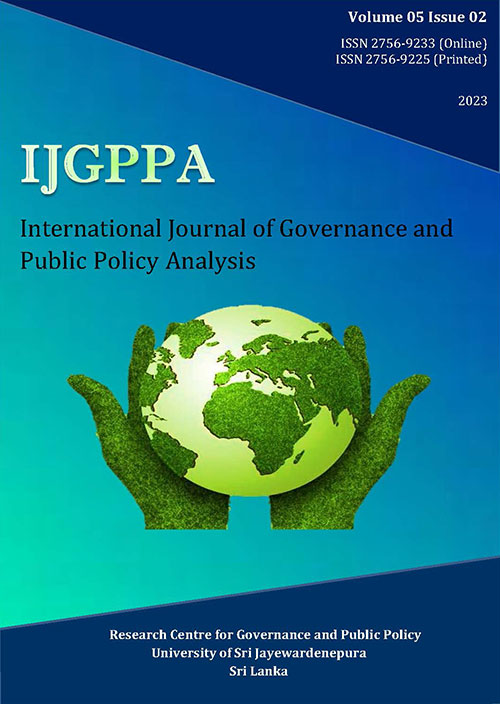Public Value and Level of e-Government in Sri Lanka: Problems and Prospects
DOI:
https://doi.org/10.31357/ijgppa.v5i02.7256Abstract
Achieving public value and maintaining a higher public value in e-Government is considered as the ability of e-Government systems to provide efficient and better services to the citizens. The government of Sri Lanka has started e-Government developments since early 2000 investing more than 2000 million Sri Lanka rupees annually on e-Government implementation and adoption, but the level of eGovernment and public value of some websites must be further improved for a better service delivery. This study examines public value and level of e-Government in Sri Lanka based on selected ten government websites which provides most essential services to the public. The level of e-Government has been examined by using criteria of the UN-ASPA model and the public value of the selected websites has been examined through a survey. Among 1200 final year undergraduates for the year 2023, 75 of them were selected from a purposive sample who are following eGovernment subject as a part of their degree program at the Faculty of Management Studies and Commerce, University of Sri Jayewardenepura, Sri Lanka. Data were collected from a structured questionnaire to examine the public value of the websites and used descriptive statistics to analyze the data. The level of e- Government has been examined using the UN-ASPA model and results were analyzed based on a scoring method. The study revealed that the selected government websites have a relatively higher level of public value and e- Government level. Accordingly, the highest scored e-Government website is the Central Bank (23 scoring marks out of 25), and the least scored website is the Department of Registration of Persons (19 scoring marks). The public value of all the selected websites ranges from a high level to a moderate level. The Ministry of Education has scored the highest public value (the mean value is 4.2) among the ten-government websites and the Ministry of Higher Education has the lowest public value (3.8). The study observed that a higher level of public value tends to have a higher level of e-Government. A further study is necessary however, to confirm this relationship. This study contributes to the existing body of knowledge on e-Government services on Value and concludes that a higher level of public value represents a higher level of e Government services based onSri Lankan government websites. Finally, the study proposed recommendations to further improve public value level and e-Government level of the websites in Sri Lanka.
Key words: Public value, e-Government, Sri Lanka

